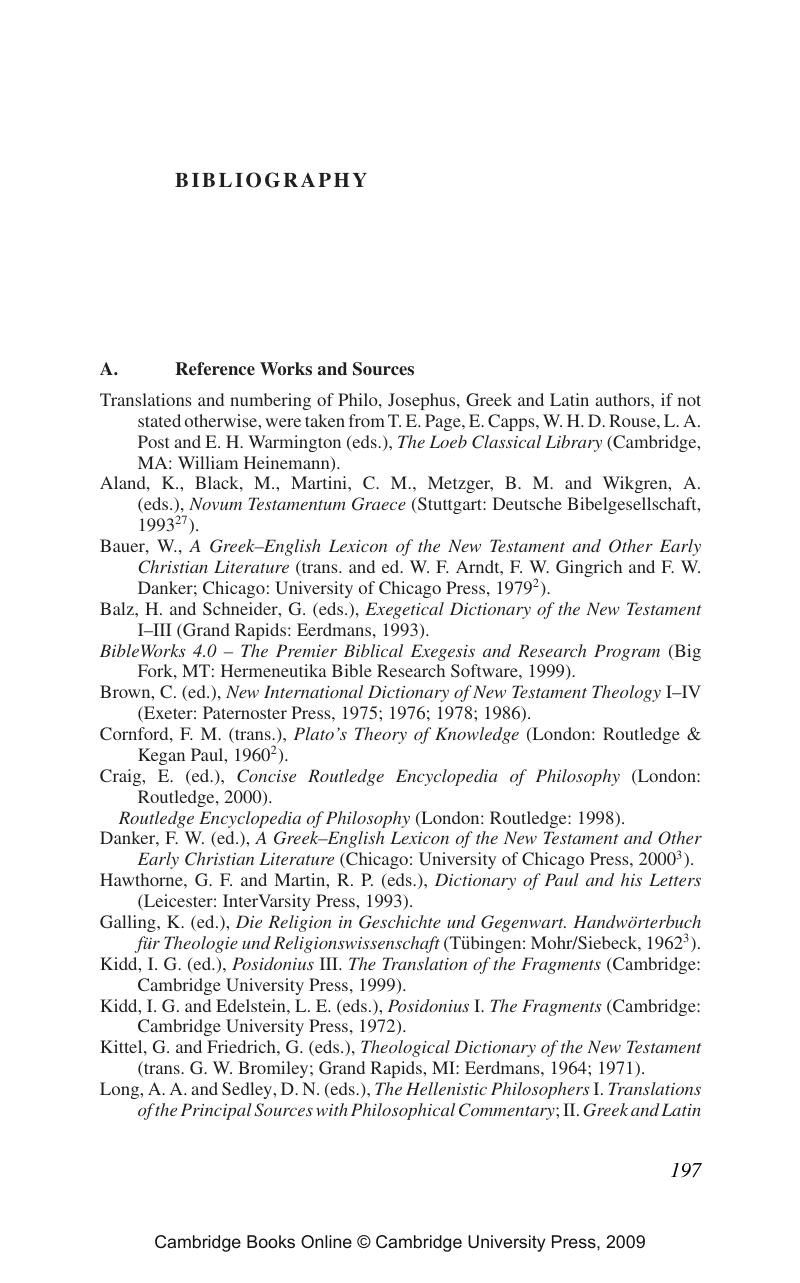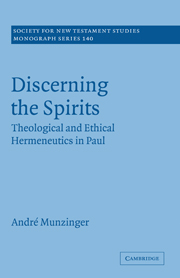Bibliography
Published online by Cambridge University Press: 26 October 2009
Summary

- Type
- Chapter
- Information
- Discerning the SpiritsTheological and Ethical Hermeneutics in Paul, pp. 197 - 221Publisher: Cambridge University PressPrint publication year: 2007



